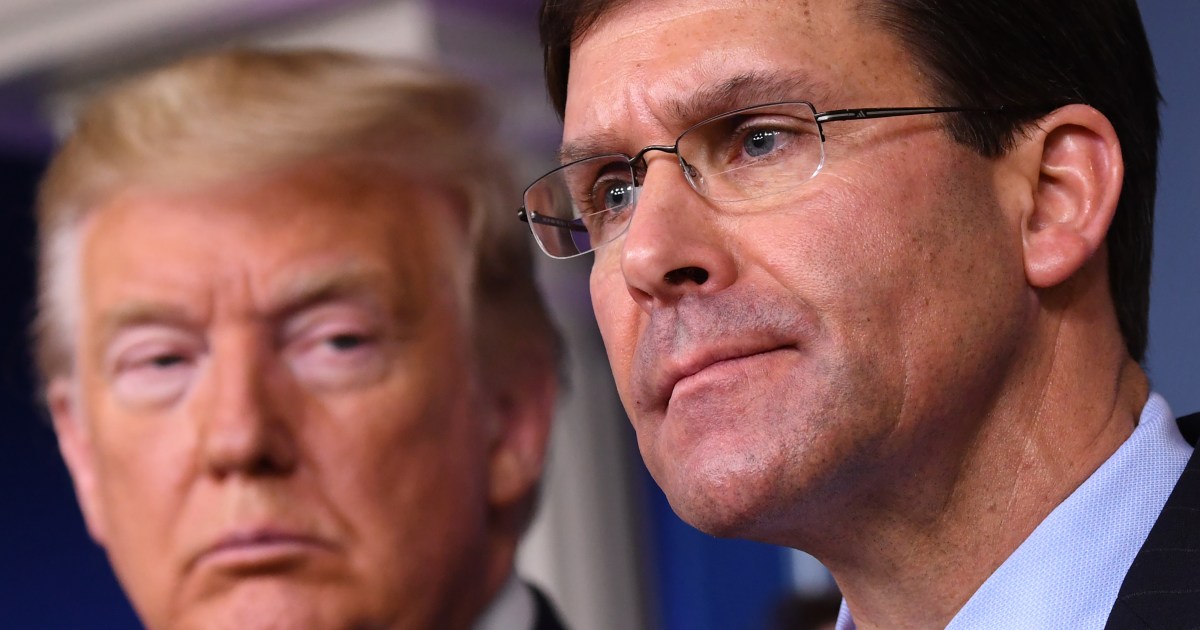Former US Defense Secretary Mark Esper said in a book issued on the tenth of this month that former US President Donald Trump asked him to shoot demonstrators near the White House in May 2020, during their protest against the killing of George Floyd by a policeman in Minneapolis. .
Former Secretary Esper wrote that when he was sitting in the Oval Office with President Trump, "the latter complained and his face was red about the ongoing protests in Washington," Trump said, "Can't you just shoot them? Just shoot them in the legs, or something?" ".
In his forthcoming book, Mark Esper, entitled "A sacred oath", describing what is going on in Trump's inner circle, he said that the idea of the military opening fire on Americans was "vigorously promoting in the air."
The protests that followed the killing of African-American George Floyd were violent, as demonstrators clashed with security forces in Washington, and the protests spread to many American cities.
And former Minister Esper's account appears to confirm previous reports about Trump's call for the army to quell the escalating protests following the killing of Floyd.
General Meli
And a previous book issued by the American journalist Michael Bandar stated, quoting his sources, that the Chairman of the Joint Chiefs of Staff, General Mark Milley, at the time rejected Trump's request for the army to intervene to suppress the protests that took place two years ago.
And journalist Bandar quoted Trump as saying, "They shot them in the leg, or maybe the foot...but be hard on them," referring to the protesters.
During the outbreak of protests rejecting US police violence, Mark Esper publicly stated his refusal to invoke the Counterinsurgency Act, a 200-year-old law, in order to justify the deployment of the armed forces to confront the demonstrations.
Mark Esper's position angered former US President Trump, who fired the Secretary of Defense in November 2020.
And the American news website Axios reported in a report that the book of former Minister Esper was examined by the US Department of Defense (Pentagon), and reviewed by a number of generals and members of the US government.

